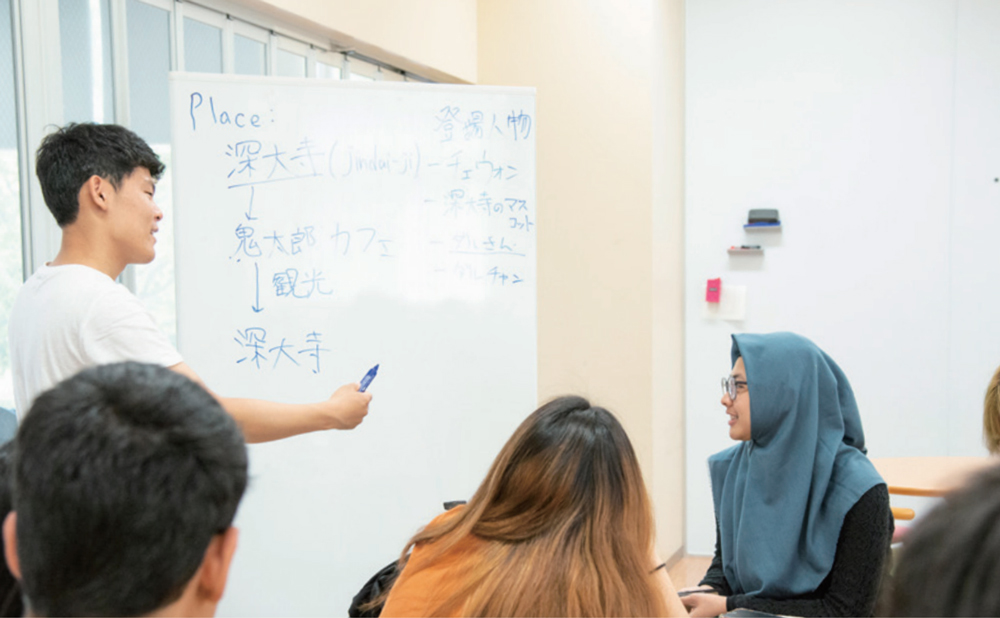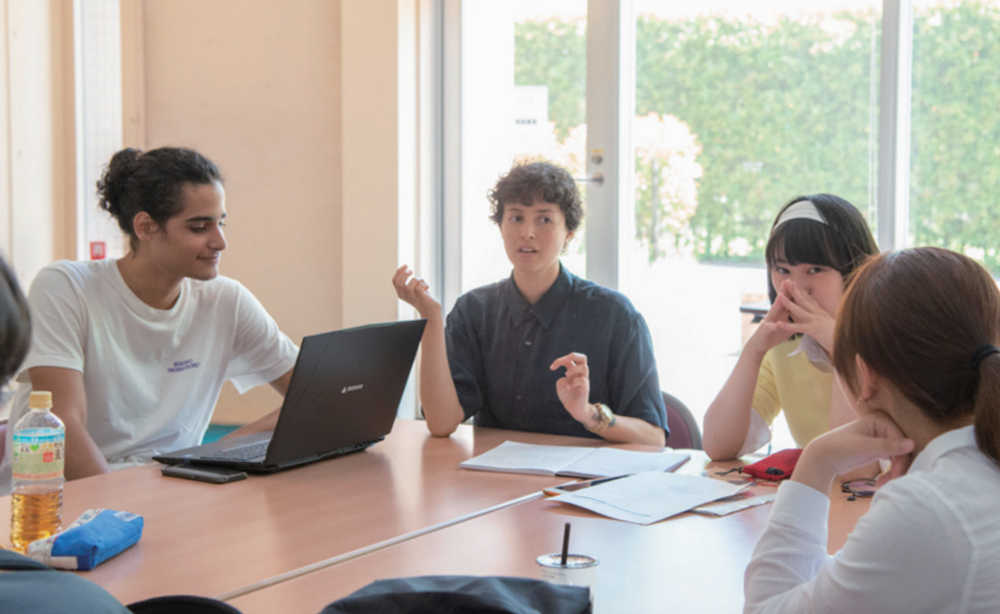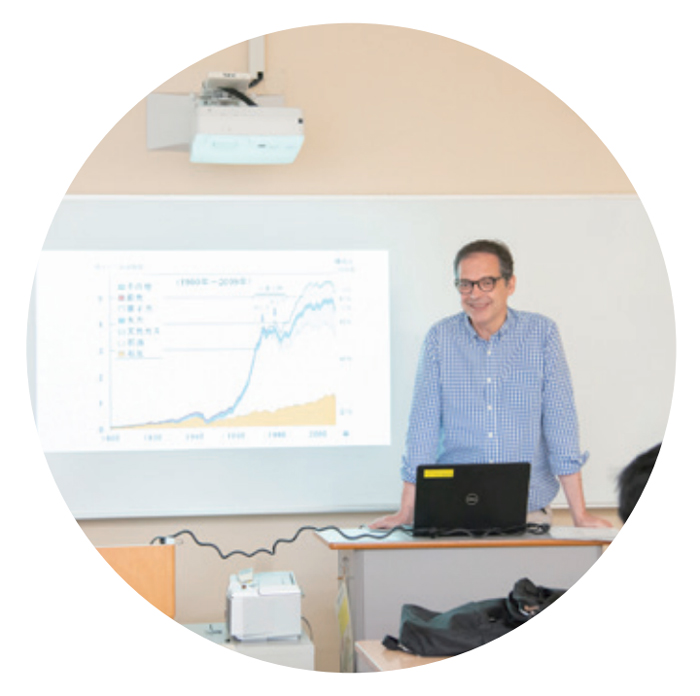A Selection of Courses in SJS
 Multicultural Collaboration
Multicultural Collaboration
Instructors: OTSU Tomomi, ITO Katsuhiro, ABE Shin, Iris HAUKAMP
This is a course in which Japanese and international students collaborate during fieldwork, etc. and give presentations on the results. Students with diverse backgrounds work in a group using English and Japanese on a theme chosen by the group members themselves. The goal is to acquire language competency and the ability to act and communicate in a multilingual and multicultural environment.
-
 Fieldwork in the Local Community: Planning and Implementation of Exchange Meetings with Partner Schools
Fieldwork in the Local Community: Planning and Implementation of Exchange Meetings with Partner Schools
Instructor: YUKIMATSU Hanae
We will visit our partner schools or invite students from there to engage in exchange activities. Through planning and implementing events to promote interaction with local high school and junior-high school students, students will develop such skills as planning ability, organizational skills, and creativity. Assigned the task of explaining about the research in the field of “Global Japanese Studies” and its appeal to middle-school students, students will also have the opportunity to reflect on their own learning at SJS.
-
Survey of Japanese Literature and Culture 2: Literature and Culture in Japan
Instructor: TSUCHIDA Kosuke
The Chinese character, “Wa” (和), means not only the country of Japan (やまと) but also softening something (やわらげる). The Japanese have adopted other cultures since ancient times, but cultural reception is not a pure imitation but a process of adaptation. Thus, “Wa” can be interpreted as a word referring to how the Japanese adopted and “Japanized” (or “softened”) other cultures. In this lecture, we will consider how the Japanese have reworked other cultures into their own – a “softened” culture – in each era by looking at various cases.
Theories of Multicultural Society: Understanding Cross-Cultural Issues of Collective Memory: The "History Issue" in East Asia
Instructor: Philip SEATON
The “history problem” (the aftereffects of imperialism and war in East Asia) is a major challenge in the relationship between Japan, China, and South Korea. This debate-style class considers various issues relating to historical consciousness and imperial responsibility. In addition, students think about war and peace through fieldwork.
-
 [TOPIC] The International Teaching Staff of SJS
[TOPIC] The International Teaching Staff of SJS
The School of Japan Studies has over 30 full-time professors, associate professors, and lecturers, all with long experience of research and teaching in their respective fields within Japan Studies. SJS also has a special program (under the auspices of the Consortium for Asian and African Studies, CAAS) which invites post-doctoral researchers from partner universities on short-term teaching and research fellowships. With an average of one new teaching fellow employed every year, they make an invaluable contribution by regularly bringing fresh research interests and teaching methods into the School.
-
Global Liberal Arts Program
All students take the Global Liberal Arts Program regardless of the school they are enrolled in (School of Language and Culture Studies, School of International and Area Studies, or School of Japan Studies). The program includes not only humanities and social science classes but also natural science classes, so that students can receive a broad-based education essential for living/working in international society.
Please see here for details about the Global Liberal Arts Program.
-
Japanese Language Teacher Training Program
In April 2024, the certification system for “Nationally Registered Japanese Language Teachers” to teach at “Nationally Accredited Japanese Language Educational Institutions” was established. TUFS offers a “Japanese Language Teacher Training Program” to help students obtain this certification. Upon completion of this program, students are exempted from the “Fundamental Competency Examination” part of the “Japanese Language Teacher Examination” and the “Practical Training” (teaching practice), which are required for certification. (Passing the “Applied Competency Examination” part of the qualification examination is required to obtain the certification.) If you are interested in Japanese language education and foreign residents support, both of which play a major role in our efforts to realize a multicultural society, please consider enrolling in the program.
Please see here for details about the Global Liberal Arts Program.
-

